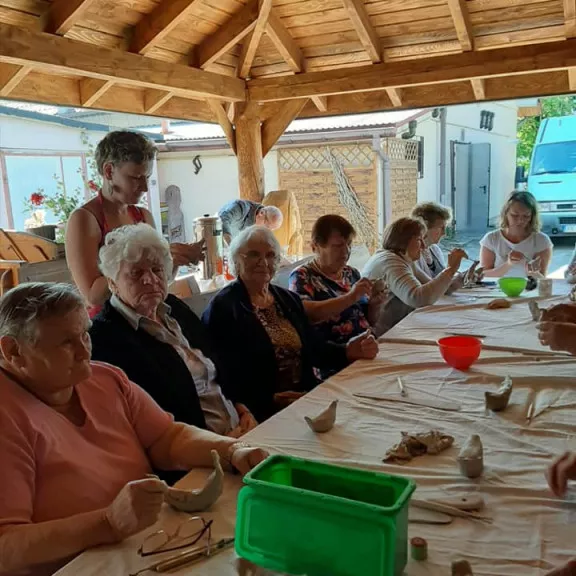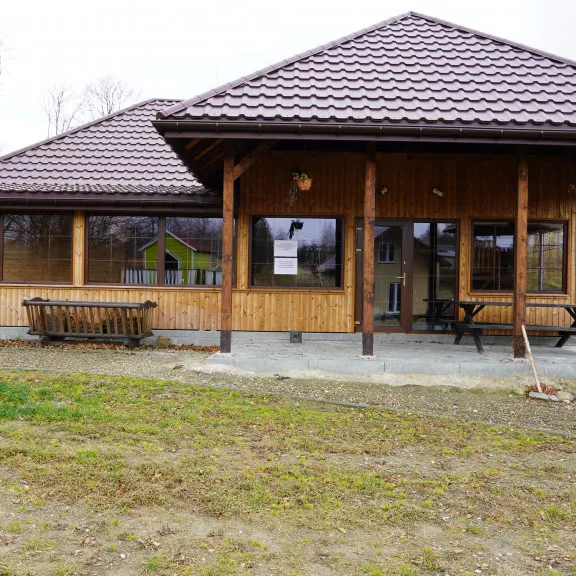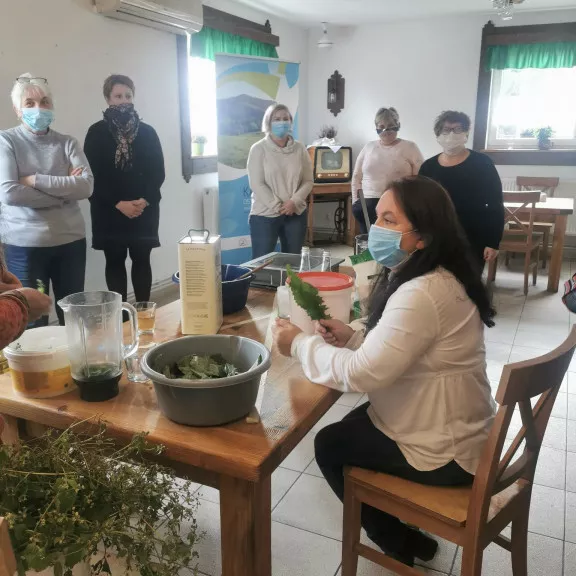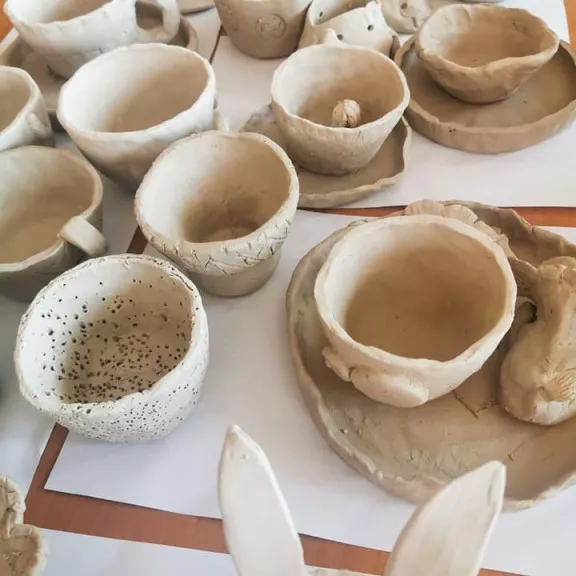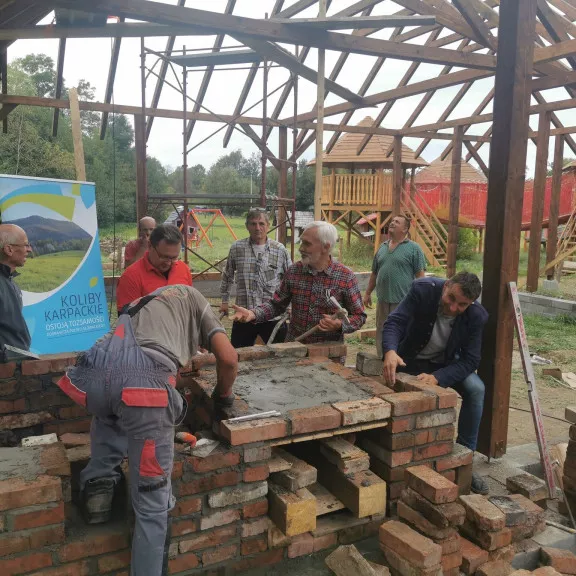
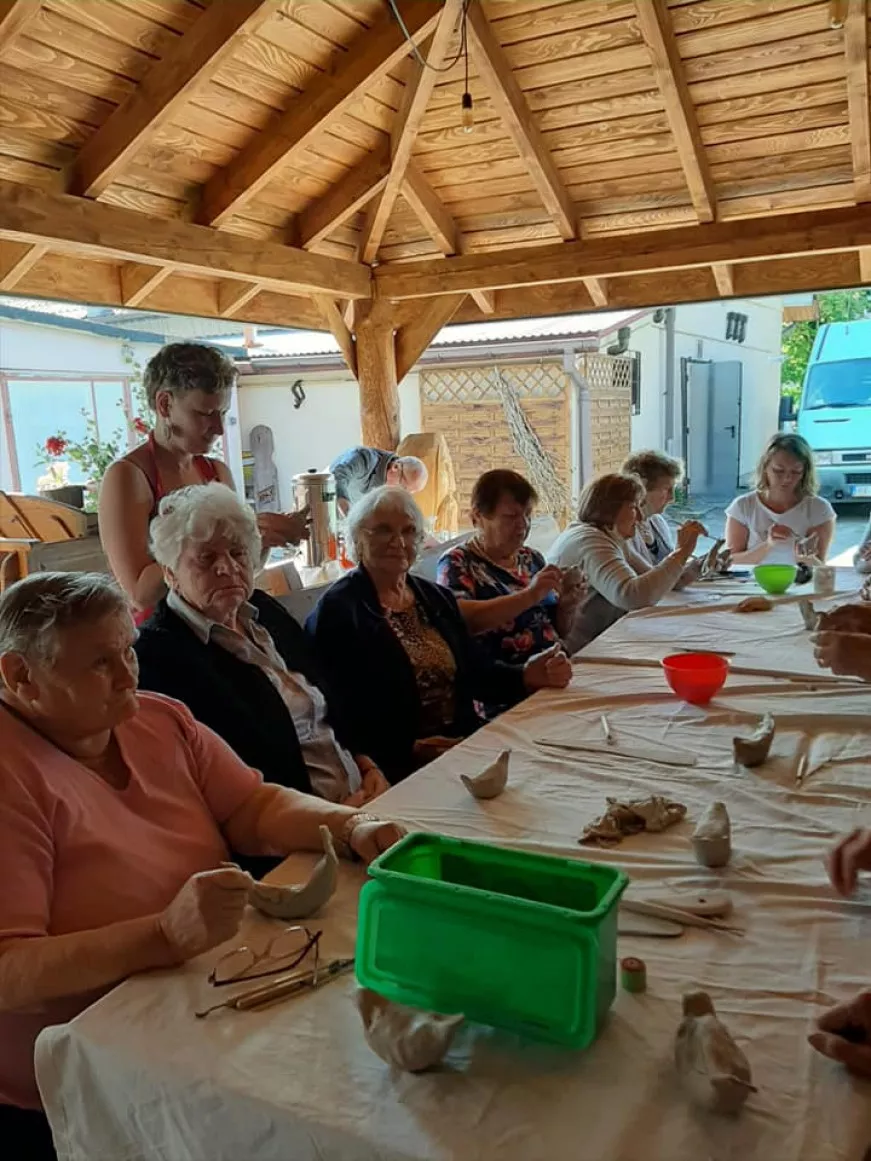
Karpackie Koliby - the mainstay of the identity of the Polish-Slovak borderland
Beneficiary: Association Local Action Group "Dorzecze Wisłoka"
Polish partner: present Fulianka
Implementation period: 01/04/2020 - 31/08/2021
Realized project value: € 48,033.00, including ERDF co-financing: € 40,828.06
Culture, tradition, rituals, and customs are links characteristic of the Polish-Slovak border. It is precisely the traditions related to the common cultural heritage that should be nurtured and popularized especially among the youngest. Hence, the partners saw the need to implement projects that would allow them to meet, share skills, and instill attachment to tradition among young people. The leitmotif of the meetings carried out as part of the project was handicraft, culinary traditions, music / singing and fun - which allowed for breaking language barriers and integration. On the other hand, the construction of the Carpathian kolibas took place in the Polish-Slovak borderland in Odrzechowa and in Fulianka - towns located on the horse and rolling stock trail. Investments are aimed at extending the tourist period and cultivating cultural and culinary traditions among the young generation. The implementation of the investment significantly increased the attractiveness of the horse and rolling stock route.
The main activities carried out under the project:
- Construction of the "Karpacka Koliba" - a stop of cultural traditions, on the cross-border horse-train trail in Fulianka. Karpacka Koliba - this is a multifunctional world, it is not only a stop for people traveling on horseback, but also a place for workshops of disappearing professions, culinary workshops, Carpathian music festivals, shepherd's fairs and handicrafts, etc. The shelter built in Fulianka has an area of 247 m2 and is situated in 50 m away from the train and horse trail.
- Construction of the "Karpacka Koliba" - a stop of cultural traditions, on the cross-border horse and rolling stock trail in Odrzechowa in the cradle / center of the horse and rolling stock trail . The Carpathian Koliba with an area of 96 m2 was built in Odrzechowa. It is from here that tourists set off on the trail and come back here to rest after an eventful day in the privacy of local music, singing and traditions. Koliba is used not only as a place of rest, but also serves as the organization of workshops. In addition, a set of climbing walls was also built for active leisure.
- Forge of Carpathian handicraft and culinary traditions in Fulianka. On the Slovak side, a number of soft activities were carried out in the form of woodcarving, weaving, pottery workshops, cooking and baking traditional dishes outdoors, the production of traditional cheeses, and workshops entitled The use of herbs in traditional Carpathian cuisine There was also an international fair of pastoral traditions in the Carpathian Koliba. A total of 69 people from Poland and Slovakia participated in training activities, while 165 people took part in the Fair. Culinary and craft workshops as well as the international fair of pastoral traditions were very positively assessed by the participants of these events. Everyone appreciated the effort to preserve the tradition and exchange information about the traditions in the region.
- Forge of Carpathian handicraft and culinary traditions in Odrzechowa. As in Slovakia, in Poland everyone could also find something for themselves in the offer of the workshops that have been prepared. In Odrzechowa, workshops were organized for stove fitters, traditional Carpathian lace, pottery workshops, cooking and baking traditional dishes in the Carpathian Koliba, and workshops entitled The use of herbs in traditional Carpathian cuisine. There was also a fair of pastoral traditions, which took place in the Karpacka Koliba project created as part of the project. During the fair, a number of attractions were organized, including performances by artists from Poland and Slovakia. And the fair of folk art and the presentation of Carpathian shepherd instruments made it possible to admire the real treasures of the Polish-Slovak borderland. In total, 60 people from Poland and Slovakia participated in the training activities, while 850 people took part in the Fair.





